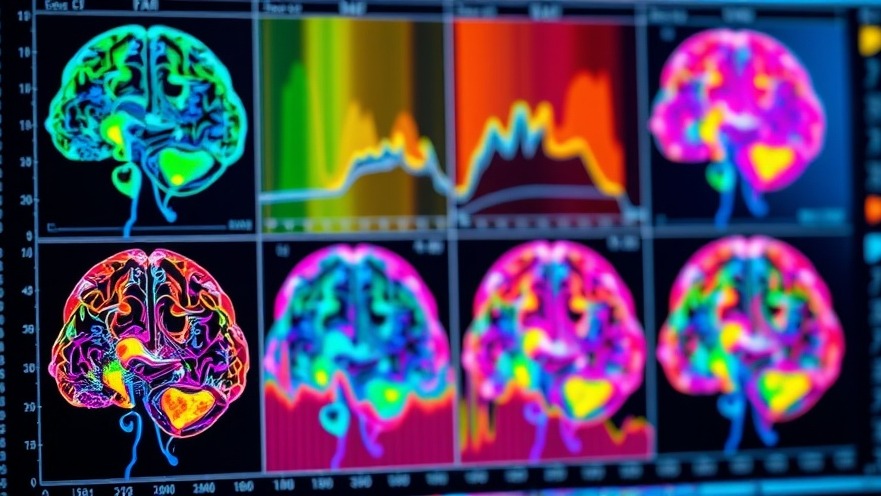
Understanding the Revolution: Digital Protocols for Mental Health
In recent years, the intersection of technology and healthcare has opened new avenues for treatment and management of mental health conditions. The groundbreaking research published in npj Digital Medicine details how a digital protocol (RMPY-008) not only enhances brain connectivity but also significantly uplifts mood and reduces inflammation, offering compelling advantages for elder patients, particularly those facing psychological challenges.
A Study Built on Solid Evidence
The research involved a randomized controlled trial with 103 participants aged 50 to 65, exploring the effectiveness of the RMPY-008 protocol. This structured digital intervention couples evidence-based psychological strategies with neuroscience-informed sensory modulation. Remarkably, participants experienced a significant reduction in depression and anxiety symptoms, alongside enhanced resilience and overall well-being.
Connecting the Dots: Brain Plasticity, Emotion, and Immunity
Professor Amir Amedi, a lead researcher in the study, emphasizes the quickness with which notable connectivity changes were observed within critical brain networks such as the insula and prefrontal cortex. The insula plays a vital role in emotional regulation and interaction with the immune system. These findings are particularly salient as they demonstrate the potential of technology to retrain both brain and body—indicating a significant link between emotion regulation and immune function. Researchers discovered that changes in resting-state connectivity in the brain were correlated with improvements in both psychological outcomes and inflammatory markers.
Key Immune Markers: A Promising Connection to Mental Health
The study particularly scrutinized pro-inflammatory immune mediators such as TNF-α and IL-17, known to influence mood disorders and neurodegenerative conditions, including Alzheimer's disease. Notable reductions in these markers were recorded alongside emotional improvements, suggesting that RMPY-008 could potentially catalyze a coordinated immune response that does not only align with mental health advancements but offers a systemic health benefit.
Sustained Engagement: A Vital Indicator of Success
Another aspect of RMPY-008 worth noting is the high adherence rate of 94% among participants, with most completing over 80% of their daily sessions over a three-week follow-up. This indicates not only the efficacy of this technological intervention but also its acceptability among users, an essential factor in health technology adoption.
Future Predictions: The Role of Digital Health Interventions
As technology continues to shape healthcare practices, the potential for digital health interventions like RMPY-008 to reform mental health treatments is immense. Given its proven ability to reduce symptomatology and its seamless integration into patients' lives, such protocols may soon become a staple in the toolkit of healthcare practitioners, especially for older adults struggling with mental health.
Decisions Practitioners Should Consider
As concierge health practitioners strive to provide personalized care, integrating digital protocols like RMPY-008 into practice can serve as an innovative solution for enhancing patient outcomes. This protocol not only presents a method for improving mood and reducing inflammation but could also yield broader implications for managing chronic conditions associated with inflammation. By adopting such technologies, practitioners can lead the way in offering holistic treatment options that resonate with their patients’ needs.
Understanding the Implications: Growth Opportunities for Providers
The integration of digital interventions reflects an ever-evolving landscape in healthcare. For practitioners, embracing these advancements is crucial to remain competitive and responsive to patient needs. With the continuous rise of aging populations and the prevalence of mood disorders among them, equipping oneself with knowledge regarding such treatments gives healthcare providers an edge in offering advanced health solutions.
As we continue to explore the relationship between brain connectivity, mood regulation, and immunity, having access to leading-edge resources such as digital protocols can enable healthcare providers to make informed choices that benefit themselves and their patients. Consequently, as this subject continues to gain traction, it reinforces the importance of keeping abreast with developments that can impact practices significantly.
 Add Row
Add Row  Add
Add 




Write A Comment